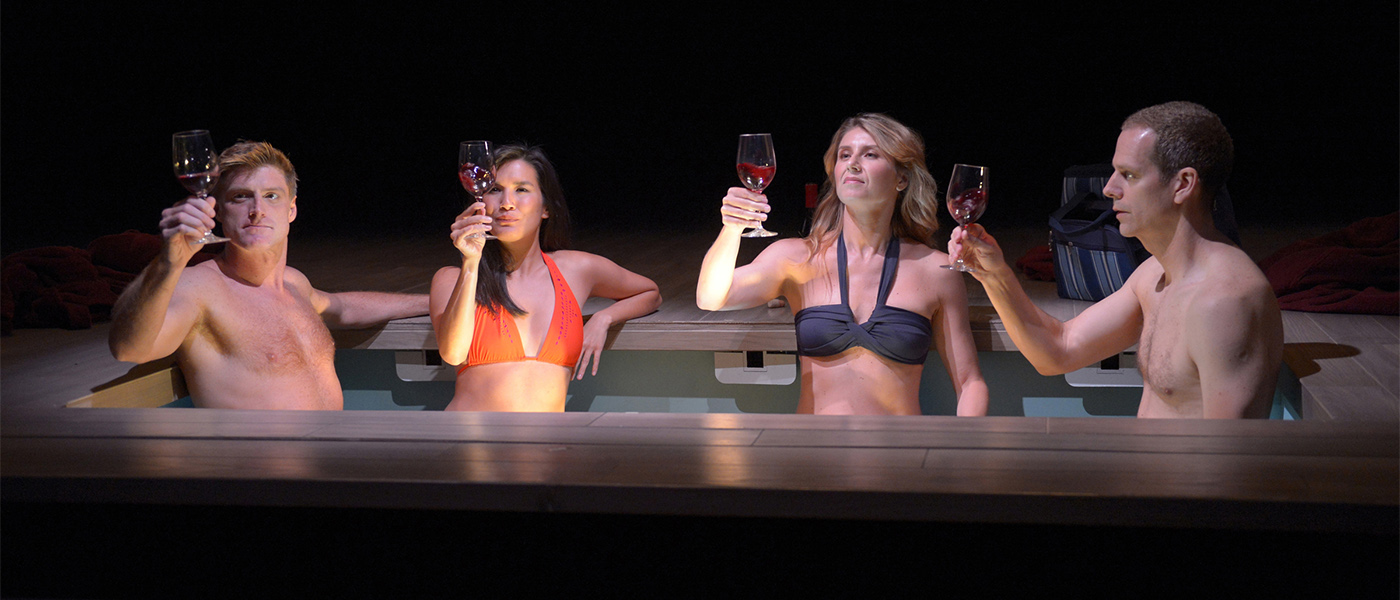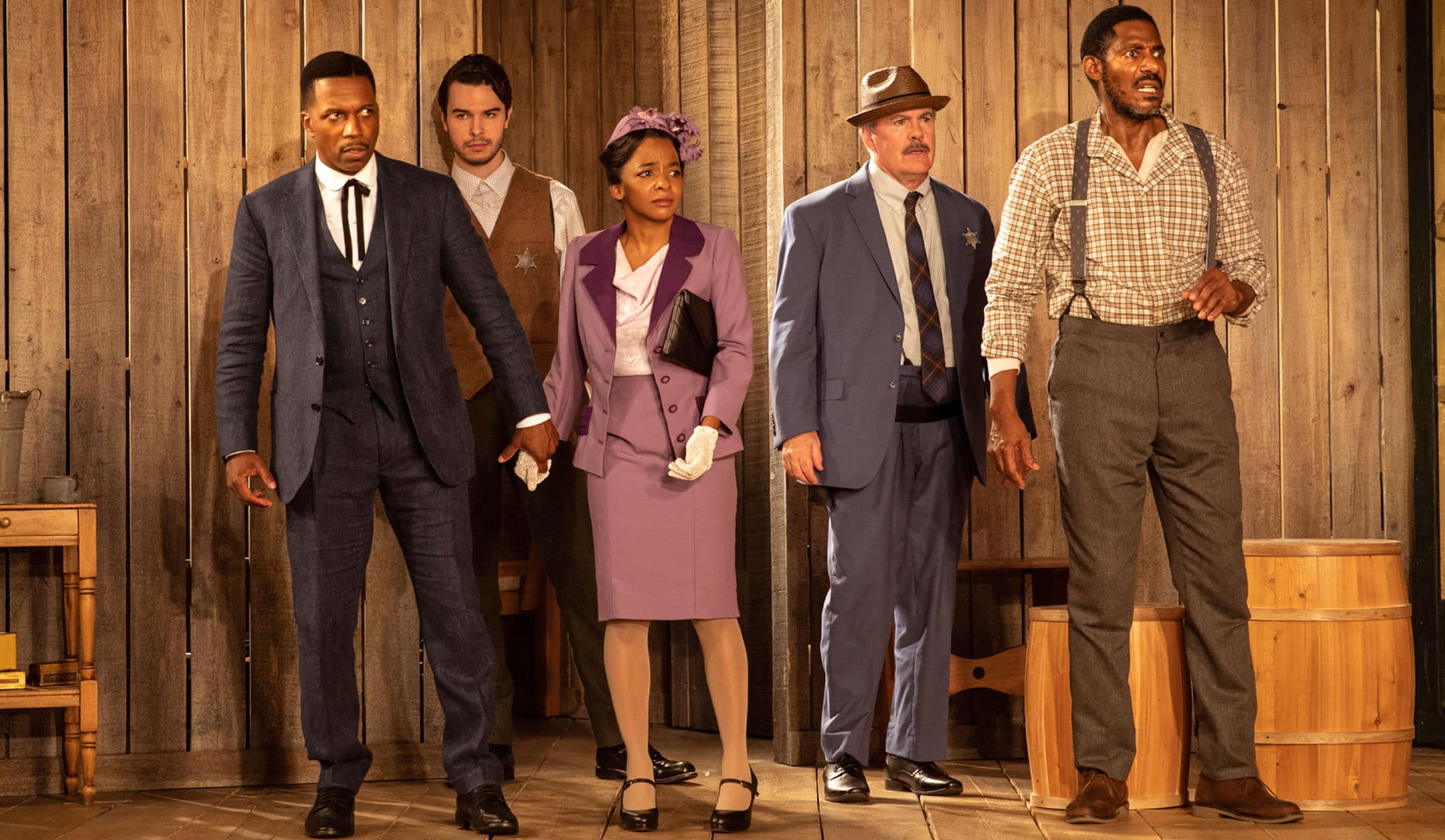
In honor of the 15th anniversary of the film Sideways (coming up in 2019), we sat down with Rex Pickett, author of the novel on which the screenplay was based. Rex Pickett’s stage adaptation of the cult classic premiered at the Ruskin Group Theatre in Santa Monica, and had several subsequent productions, including a run at La Jolla Playhouse that set box office records for sales of a non-musical. In Part One of this interview series, we’ll focus on the inspiration for the novel and film, and journey from page to stage. In Part Two, we’ll focus on the ins and outs of adapting the well-loved story for theatre audiences, and get Rex’s advice for prospective producers wanting to take advantage of the anniversary of the film and program Sideways for their 2019/20 seasons and beyond.
Nikki Przasnyski: So, you wrote the novel in 1999 originally. Were you a wine aficionado in the nineties? Or what was the inspiration for the novel?
Rex Pickett: Not really. I mean, I drank wine but I didn’t know anything about it…I was kind of in a very low place in my life. I was living in LA at the time. I’d started going to these wine tastings that were $4.00 on Saturday, and I got to know some people there.
I’d gravitated north to a golf course in the setting of Sideways in the Santa Ynez Valley because it wasn’t crowded. It was called La Purisima. I wrote a novel called La Purisima and it got me a literary agent. And suddenly, whoa, okay…You know, there’s a chance here. It was the first novel I had written and he took me on. But I kept going back up to the Santa Ynez Valley to play golf, just midweek, just to get out of my head. My life was completely nowhere. It was an inexpensive vacation. And it was so lovely and so beautiful there I started staying overnight at the Windmill Inn — $29.99 — just like where Jack and Miles stayed.
One time I went up with a friend of mine, Roy. Roy is the Jack character. Not quite like in the movie, but he is the Jack character. He’s funny, he’s the life of the party. Women love him; everybody loves him. I can make him laugh and crack him up. We went wine tasting for two days and we played golf, and he said, “You should write this as a screenplay.” I wrote it as a screenplay but I didn’t like it. In fact, I so didn’t like it I didn’t show it to anybody.
Nikki: How did it progress from there?
Rex: I wrote a short story — it was about a wine tasting at this little wine store and it degenerates into a brawl. The short story was written in first-person, from the point of view of a character named Miles. When I got to the end of the short story I literally stood up from my desk and said, “Oh, my God. That’s the prologue to the novelization of the screenplay. It will be written in first-person.” And I wrote it in nine weeks.
That trip with Roy was key. I started reading a lot about wine, and that becomes kind of almost a third character in a way.
Nikki: Did you have any idea when you wrote the novel or when you made the film that it was going to have the kind of cultural impact that it did on the wine industry?
Rex: No. I mean, absolutely not. I was writing. I said to myself, “I’m in such a state of suicidal despair that…No one is gonna read that. No one is gonna read a solipsistic novel about me going up there all by myself and just drinking my guts out. I’m gonna make this funny.” And I think humor sold despair.
And in a way it’s analogous to wine. It’s really a balance between fruit — ripe fruit — and acid. If you don’t have the acidity, which comes from the cold ocean, usually, and the cold nights, you’re gonna have pear juice. If you have only acidity you’re gonna have something that’s too astringent. I didn’t want total astringency…because I’ve been told I can be very funny. On the other hand, I didn’t want it to just be flat…be pear juice, a “Ha-ha-ha,” like some Adam Sandler comedy or something like that. I didn’t want that. I’ve always wanted to write things that have layers to them, have more depth.
But the answer to your question: Absolutely not. I had no idea. I’m just writing to save my life.
Nikki: I think it will be inspirational for writers to hear that in your place of this despair and depression came an incredibly successful work. Especially because you were true to both the humor and the sadness of the experience.
Rex: Well, I appreciate that, Nikki. Because I’ve always believed that art — in whatever medium — I mean novels are a unique art form because you can get, I think, deeper into the soul in some ways. I think theatre can too. And I’ve really missed out with theatre in my life…But I think that art can be transformative in a way. For the artist, and the audience of that art, be it theatre, movie, or novel.
Nikki: That’s a great segue, actually. What was it like to bring the novel to the stage? How did that process come about?
Rex: Well, the movie came out. It was a hit. It wasn’t like an ephemeral hit. It kept growing and burgeoning…and I suddenly realized this isn’t gonna go away. So I wrote a sequel called Vertical, and I was doing a signing across the street from a little theater called Ruskin Group Theatre in Santa Monica. A guy came over from the theater — this guy Jason Matthews — and said, breathlessly:
“I’m a huge fan of Sideways, I’m a huge fan. Have you ever thought about doing a play?”
I said, “No.”
He said, “Well, would you like to talk about it?” I said, “Okay, sure.”
So then I met the entire group.
They said two things that I loved, and no screenwriter has ever heard this.
They said, “Okay, great. We’re gonna do it based on your novel and everything else,” and, “Of course we won’t touch a single word of yours. We can’t, contractually.”
They said, “We’re gonna work in development with you, but once it’s ready to go we won’t touch a word without your approval.”
I thought, “Oh my God! There’s actually respect for the writer.” And then they said, “And you get to hire the director.”
I go, “What? Where do I sign?” No screenwriter has heard that.
I said, “Okay, I’ll do it. I love that I get to hire the director. But I want it to feel cinematic. We’re gonna have a lot of scenes.”
As you know, there’re a lot of scenes in the play. Scene and setting changes. That became a challenge, and it will be a challenge for theaters. I think it will be an interesting challenge for them, for ones who really want to take it on.
Nikki: That conversation sounds like it really brought home the respect that you have to have for the playwright’s words when you’re working in live theatre.
Rex: It’s just such a great art form. But the big difference is in film, of course, you can do a lot of things in post-production, with music and sound, and you can re-shoot and get it right. But in theatre, post-production is rehearsal.
There is this incredible stress-filled but exhilarating five weeks where you’re just…a week before, you don’t even know if there’s gonna be a play. With a play, it’s building to this kind of exultant or unbelievably despairing opening night.
Nikki: Exactly!
Rex: The other thing I did, too, with the play…They laughed at this. This is a little fifty-seat theater. It had a lobby. I said, “You realize Sideways is a big wine thing and we need to make this a wine event.” So I got very much into the promotion part of it. I said, “I want to pour high-end wine for free every night.” They look
ed at me like I was crazy. There were only three performances a week, three performances a week, but I knew a woman in Sonoma, and I told her, I said, “We’re gonna do Sideways the play. Can we get wine donated here?” She goes, “Easily. Of course.” We went to town. Cut to the chase: three performances a week, and I poured high-end wine in beautiful Pinot Noir glasses for free, as much as you could drink. We poured liberally, we poured profligately. This was a fifty-seat theater. One night we poured forty bottles.
Nikki: Oh, my gosh. That certainly sounds like a good time for the audience!
Rex: Yeah. And we allowed you to take the wine in. We were gonna run for six weeks. We ran six months, ninety performances. And I’m telling you it was one of the most artistically gratifying, soul-satisfying experiences in my entire life, and the play was sold-out every single night. I mean, we only had to sell fifty seats and it was only three performances a week. But it was so exciting, and to hear the laughter and to have people — what Sideways also did too is it brought in a lot of people who didn’t go to theatre. I would field-test it and say, “When’s the last play you’ve been to?”…because I’m sitting there pouring wine for people…and they’d say, “Oh, I haven’t been to a play in five years but I came because it was Sideways, one of my favorite films of all time.”
To purchase a copy of Sideways, click here, and to learn more about licensing a production, click here.

Newly Available for Licensing – December 2025 (US)

Newly Available for Licensing – December 2025 (UK)

